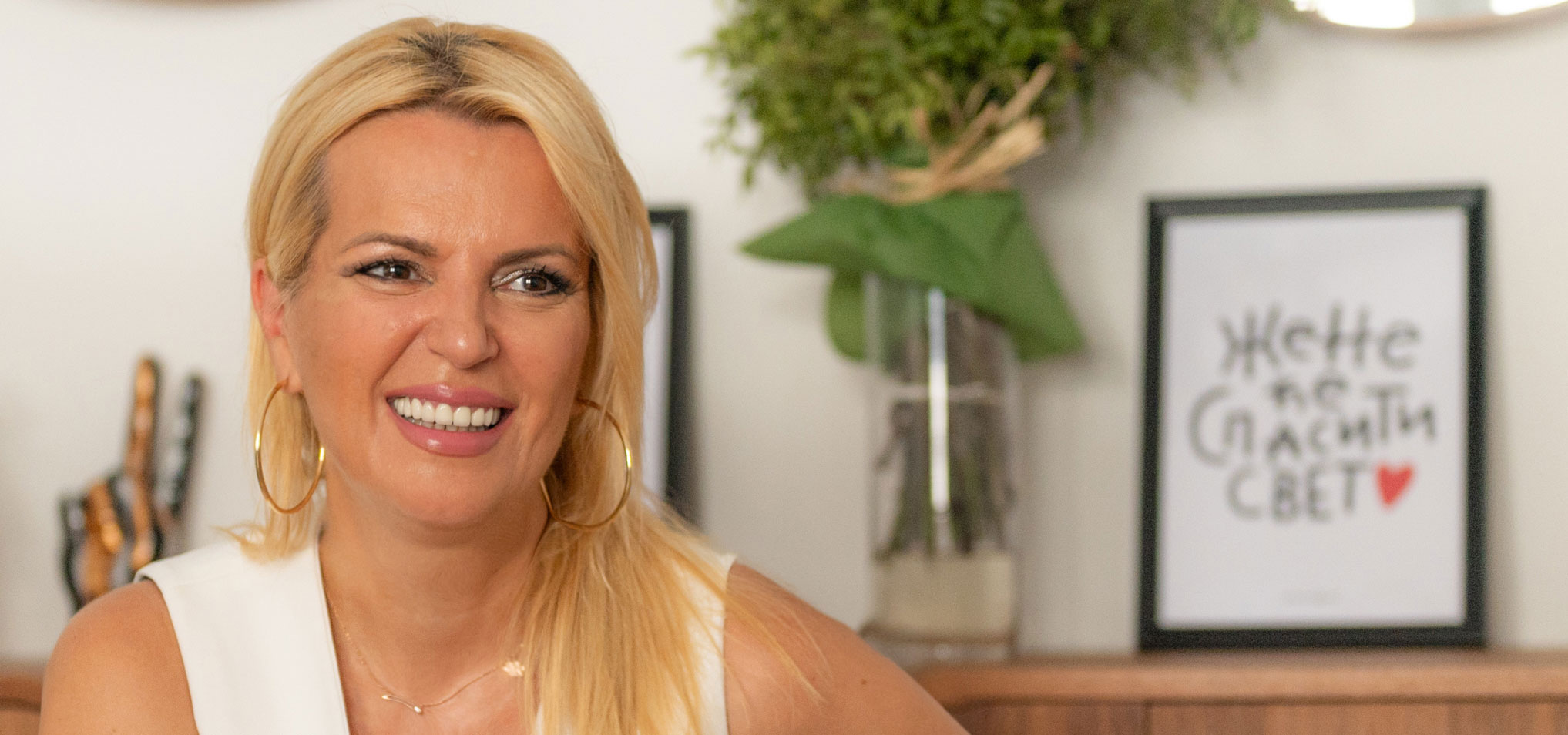Sanja Radan: The Woman Who Knows All the Media Secrets
In the mid-1990s, as a twenty-year-old woman, she stepped in front of the cameras. We remember her for fulfilling the dreams of lucky winners on the show Bingo, Around ten years later, as part of the show For a Million Years, she introduced the audience to budding stars like Aleksandra Radović and Marija Šerifović. Later, she became the face of many TV stations—from RTS, First and Third Channel, to Pink, and eventually TV Prva. Today, Sanja Radan is considered a prominent PR expert, and in an interview with 011info, she fondly recalls her childhood adventures in Zlatibor and academic successes in Belgrade. She also shares how she ended up on television and later in public relations, unafraid to voice her thoughts.
What are your first childhood memories?
My earliest memories are tied to Zlatibor, as my mother's parents, and my mother herself, were from Zlatibor. Specifically, it's a village between Šljivovica and Čajetina called Gornji Branešci. By circumstance, I spent much of my childhood there. Back in the 1970s, maternity leave lasted only 100 days, so after using all possible work benefits, my mother took me to my grandmother in Zlatibor when I was barely six months old. That's how the bond was formed, marking my childhood. Later, my mother would often take both my children and my brother's to Zlatibor.
I grew up with my grandparents, and I adored them and everything about life there. Of course, I wasn't always in Zlatibor, but my parents would often leave me there for a month at a time. Even after I started school, that tradition continued. I remember, as soon as the school year ended, my late grandpa Jeremije would come to Belgrade to take us by train to Zlatibor. If it didn’t happen on the first day of summer break, I would, as today's kids say, make a scene. For me, being in Zlatibor was synonymous with freedom and joy.
After summer break, kids at school would tease me, saying, "Why don't you stay in Belgrade a little, you always go there to watch sheep." And I would reply with a smile that I loved those sheep and cows very much. I did everything village kids did: I herded cows, picked raspberries, and helped my grandparents with daily chores. I didn’t shy away from physical work; in fact, I was happy to be trusted with tasks, as I loved being around them and helping out.
I climbed up the grain thresher to cut the rope on the bundles of wheat, weeded the garden with my grandmother, collected hay, picked raspberries, blackberries, rosehips, and by the end of summer, gathered plums. There were scraped knees and even more serious injuries. Once, I thought I saw a car approaching, so I hurried to cross the road and fell, holding a bottle. The broken neck of the bottle cut my hand so deeply that blood poured everywhere. A neighbor wrapped my hand with a towel and took me to Užice to get stitches. While treating the wound, the doctor there also tightened my tendon, so to this day, I can’t fully join my little finger and ring finger on my left hand. That’s a trophy from Zlatibor, but I wouldn’t change anything.
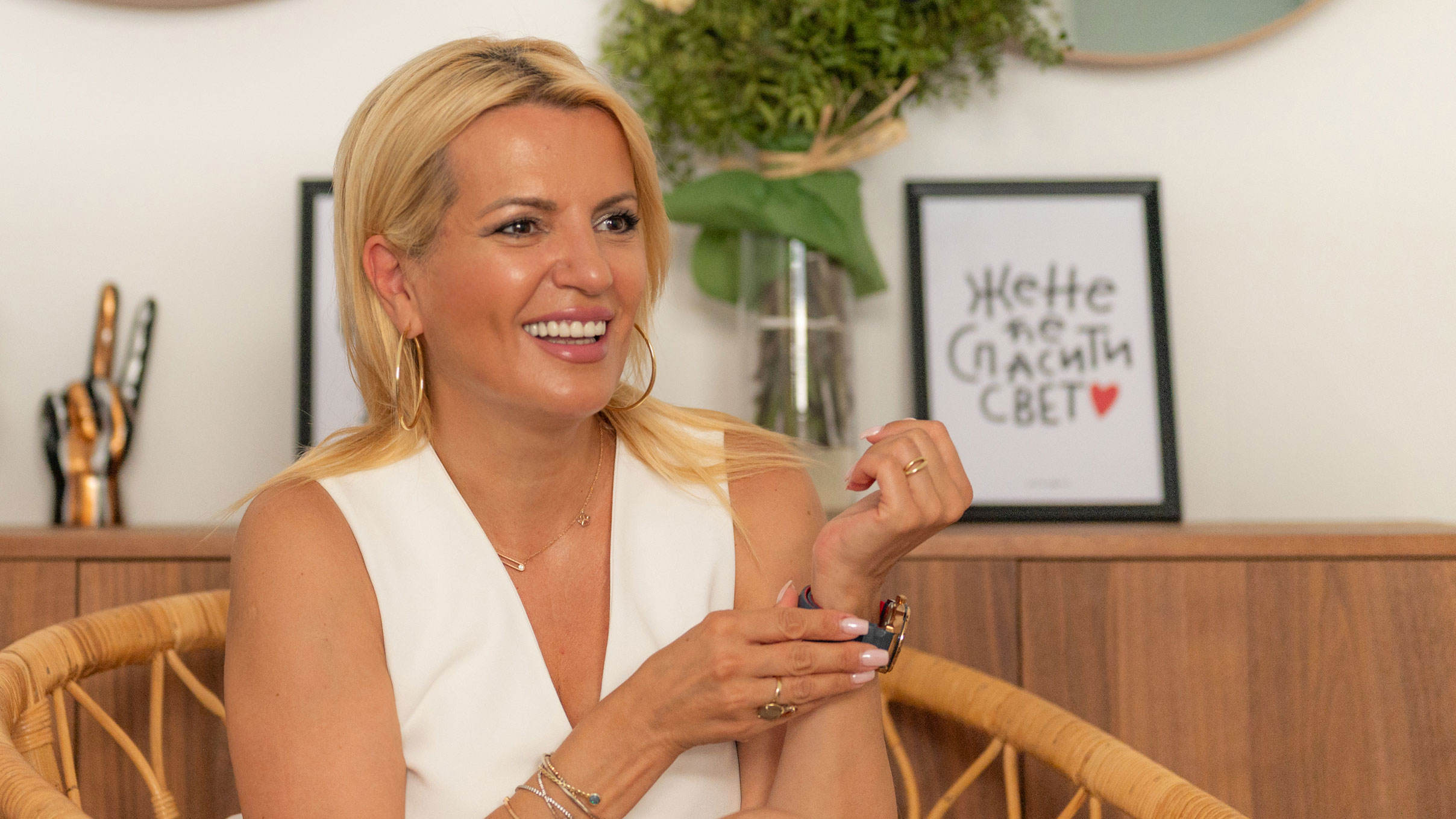
What were your other activities during the summer break?
If I wasn’t helping or playing, I was reading. I’d easily walk over the hills, four kilometers away, to the Mića Đenić Library in Čajetina for books. It felt like an adventure if I was allowed to walk to the library with a friend, even though someone would usually drive there daily. This way was more enjoyable. The kind librarian, Milina, used to say I was their member who read the most. Whenever my cousins had required reading, I’d read it and summarize it for them. Some of them later became notable journalists, like my cousin Vladimir Lojanica, who unfortunately passed away suddenly in 2023.
For me, Zlatibor was a special air, a feeling, closeness, and joy. I was a dreamer who loved to write. My grandmother Dušanka often heard the neighbors praise me, saying, "Lucky you, Dulo, your granddaughter doesn’t seem like she’s from Belgrade." That was probably the biggest compliment they could give me. All in all, the people there were truly wonderful and wise, especially my grandparents. They taught me so much and were fantastic teachers who shaped my childhood—far better than any life coaches today. My parents would come for vacation, we’d go to the seaside, and then return to Zlatibor.
When it was time to return to Belgrade and school, the goodbyes were deeply sad. I remember crying inconsolably all the way to Požega. My parents couldn’t make me come home before the very end of August, and this continued throughout elementary school. Looking back, I know that this childhood shaped me and was a blessing for everything that came later.
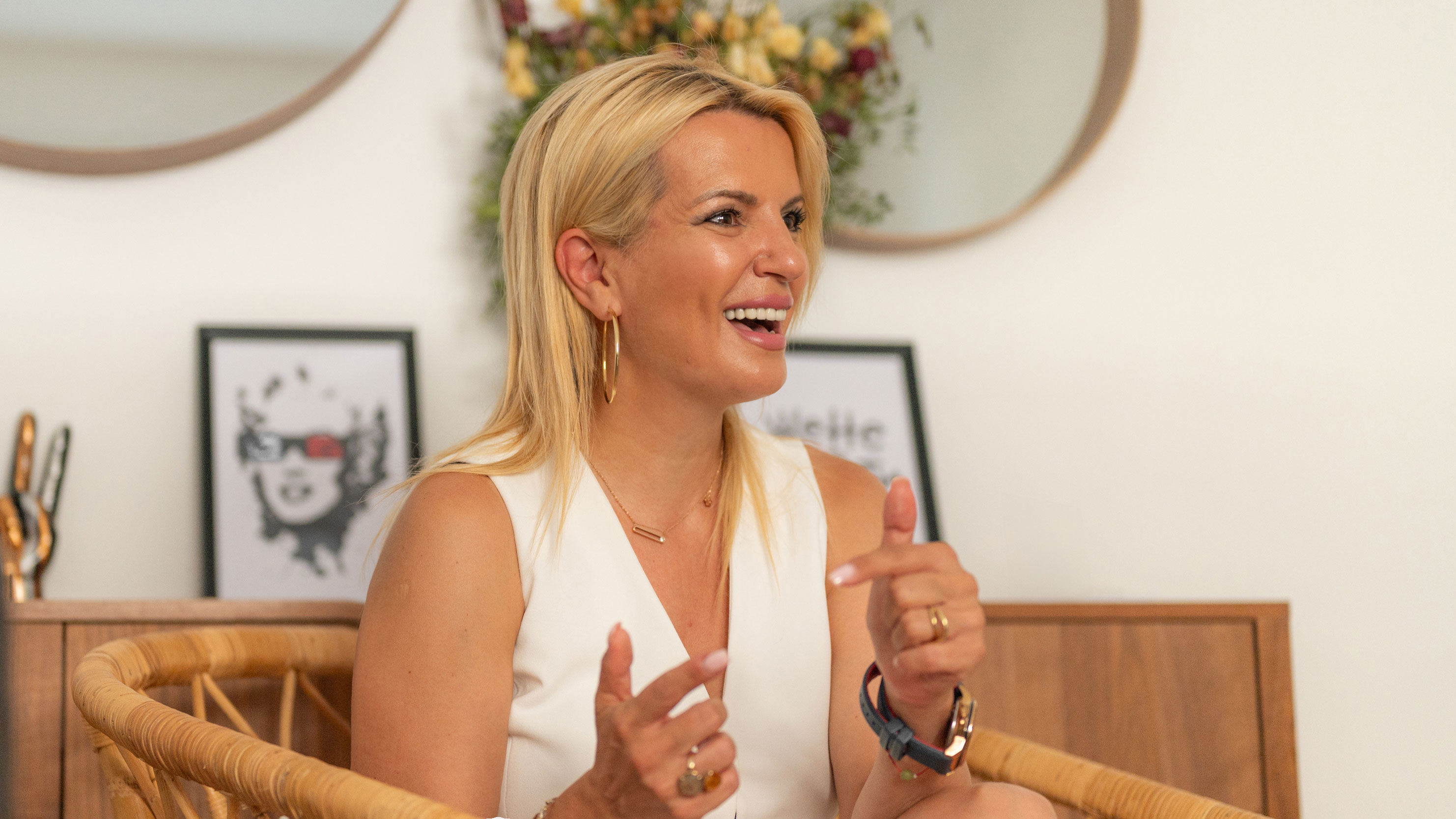
What was it like growing up in Belgrade?
I grew up on Nemanjina Street, where my mother and brother with his family still live. I attended Radojka Lakić Elementary School, which is close to today’s monument to Stefan Nemanja and right behind the Sveti Sava Hospital. Compared to other, more prestigious Belgrade schools, mine was modest, with only two classes per grade. We competed with nearby schools like Isidora Sekulić from Gavrilo Princip Street and Petar Petrović Njegoš from Vojvode Milenka Street.
Although I briefly trained in basketball and athletics, my real interest was in literature, writing, and reciting, so I was part of the literary and drama clubs. I wasn’t bad at writing for my age. The May Poetry Relay was the main event for all Belgrade schools at the time, and the prize was prestigious. As a child, I loved poets like Vasko Popa, Stevan Raičković, Dušan Matić, and Momčilo Nastasijević—quite serious poets for a 13-year-old.
Apart from writing, reciting was another serious passion, and I won many awards. One interesting project by my Serbian-Croatian teacher, Branka, involved reciting Desanka Maksimović’s poetry. I wore a black coat and hat, to look like Desanka, and recited her poetry in Zagreb. Even today, I know almost everything she wrote by heart.
Those were carefree days, and student exchanges were a tradition. We would go to families in Zagreb and Sarajevo, and then those students would visit us. It was the late 1980s, the last days of brotherhood and unity. Soon, the 1990s came, and everything changed.
I was a bookish dreamer who wrote and acted, attended Bata Miladinović’s Studio, and graduated elementary school as the student of the year. I remember receiving two books as a reward—The Iliad and The Odyssey. How old-fashioned that sounds now; today, the prize would be at least a tablet or something similar.
Writing today, along with journalism and hosting, has become a field where anyone can try their hand. Initially, it was endearing, but now it’s become tragicomic. As Sergej Trifunović said in a podcast, Hundred Minutes of Noise, one of the few I watch—everyone writes today. The best example is Victoria Beckham, who proudly admitted she hadn’t read a single book but is now a published author. That’s a metaphor for the times we live in, alongside other less amusing ones.
Times have certainly changed.
Absolutely true. I realized this during the pandemic when my daughter wouldn't let go of her phone. When I pointed it out, she explained that her entire Google Classroom was there. Kids today learn from presentations, while textbooks remain almost untouched. Not to mention high school, where they mostly study from notes and shortened versions of literature. Who even reads the assigned books anymore? Who among children reads at all? That worries me.
We've all seen that viral clip where kids on the street can't recognize Đura Jakšić, Desanka Maksimović, or Ivo Andrić in pictures, but they can easily name influencers and pseudo-celebrities. Realistically, these people are bigger role models for kids today. We may not like it, and we may resist and fight against it, but unfortunately, that's the reality.
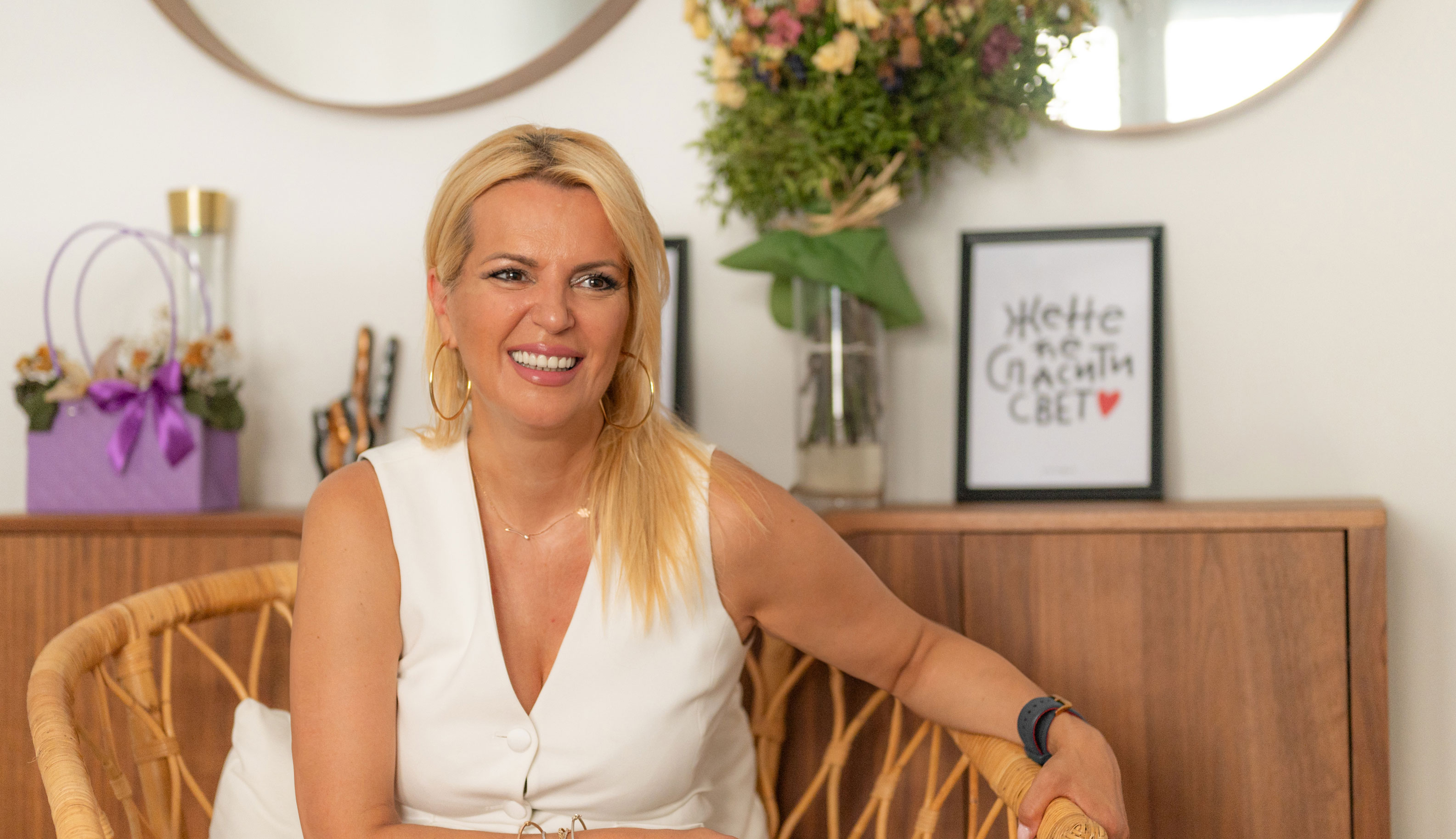
How did you end up on TV?
That’s something you never fully finish with. Communications, PR, marketing, and media are inextricably linked. I jokingly say it’s like a croupier and a gambler—sometimes you’re on this side of the table, and sometimes on the other. The important thing is to respect the ethics and rules of the position you’re in.
My first contact with television was when I recorded the show O jeziku, rode (About Language, Fellow), hosted by the famous Draga Jonaš, in RTS’s studio at the fairgrounds, on the occasion of Vuk Karadžić’s bicentenary. I was in the seventh grade. Then, in eighth grade, I played a minor role in the children’s series Sazvežđe belog duda (The Constellation of the White Mulberry).
I started working at RTS in October 1993. It was an audition for Slagalica (The Puzzle), and I was 20 years old. My family had no ties to the media. I applied to a public contest announced by RTS and was one of 3,000 candidates. I went through many selection rounds, where the group kept narrowing down. Finally, six of us were selected.
I had the illusion that older colleagues would enthusiastically guide us into the job, but that was far from the truth. However, there were trial recordings, and everything depended on how you performed on live TV.
I ended up in the entertainment program, whose editor at the time was the famous Vojkan Milenković, and the chief producer was Feti Dautović, a versatile figure and professor at the Faculty of Dramatic Arts. In the 1990s, I consciously avoided the news programs. My first shows were musical, collage-style, daily programs that seemed nothing special but were enough to reveal whether someone could become a good host. To be clear, even then, attractive girls and models applied. Also, as in any time, there were people who got jobs through connections, but they usually didn’t last long.
I worked as a freelancer for almost four years before finally getting a permanent position on December 25, 1996, while hosting Bingo with Nikola Pandilović.
It's interesting that you turned down a permanent position when it was first offered to you.
I believed that family people should be hired first. Specifically, I advocated for a wonderful makeup artist who had been working for 20 years, whose husband also worked at RTS. Both were freelancers, and their child had just started first grade. I told this to my director at the time, in Hilandarska 11, where our branch office was located. After all, I still lived with my parents and felt there was time for me. He was in disbelief and asked me if I was "calibrated." Nevertheless, I remained steadfast. When I came home and told my dad, he just said, "Oh, my Sanja, you fool. You'll come off as arrogant and proud for refusing the job, and she won't get hired." And that’s exactly what happened. They hired a production secretary who had been there for only six months because her father was, let’s say, the director’s driver. But those little battles with windmills and banging your head against the wall end up having a reason and are healing in the long run.
In December 1996, while working on RTS 1 and the Third Channel, I got a call from the same secretary who told me that I was on the list of people to be hired before the New Year. She added, "Without overthinking, just bring your work booklet." That’s how I was hired the second time around, and I stayed at the public broadcaster until 2001 when, due to a series of circumstances, I moved to Pink.
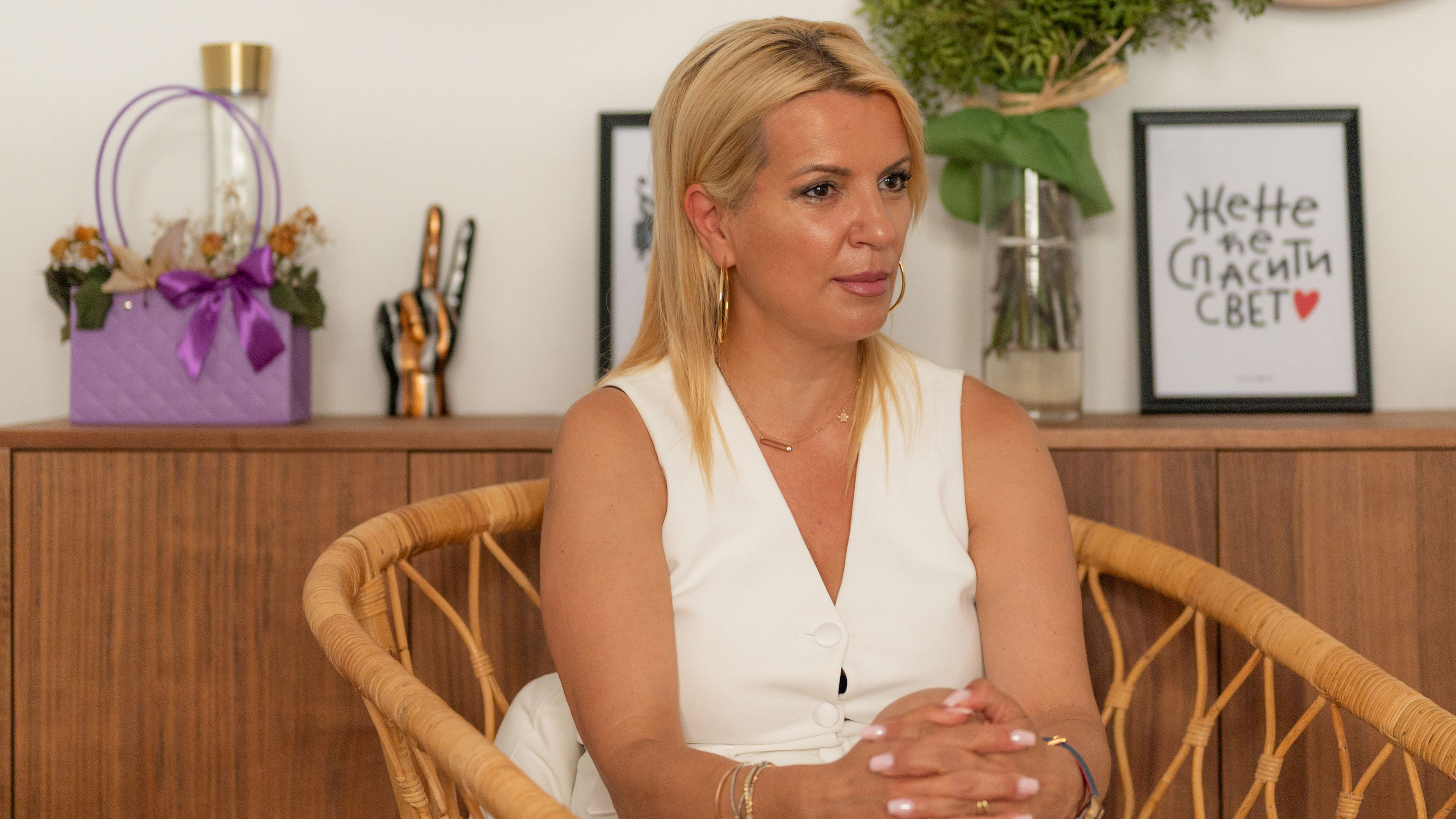
What were those circumstances?
A colleague from the Third Channel and I produced a show on culture and visual arts through a private production. The producer who helped us create the pilot episode, Toma Babović, instead of presenting it to BK Television, took the idea to Željko Mitrović, with whom he played in the band October 1864.
At the time, the October 5th events took place (which I, along with my then-boyfriend, now my husband, Mr. Radan, witnessed in front of the Parliament). This led to some reshuffling of Pink's program schedule, which created space for our show. I stayed at Pink until 2007, working on the long-forgotten show For a Million Years with Boško Jakovljević, a show remembered for launching serious stars like Aleksandra Radović and Marija Šerifović. However, I personally remember that period for the birth of my children. I had my son Vuk in 2002 and my daughter Nina in 2006.
How do you see television today?
It has never been easier to get a job in television because there are so many stations, and new ones are popping up every day. But on the other hand, judging by what my friends, who are editors, producers, and media directors tell me, and by what we all see, it's never been harder to find memorable, articulate, educated, and charismatic people. It seems like anyone can become a journalist or host. Recently, in Montenegro, I was asked how it's possible for certain individuals to be doing the job I once did. It's possible because everything has turned into reality TV. Someone who, under normal circumstances, you wouldn’t notice or comment on, because it would be distasteful, is now written about, and every anomaly is repeated and glorified. Fortunately, it's not like that everywhere. I still believe in educated, interesting, informed, versatile, and, most importantly, articulate people on television.
There are still great hosts today, those who can handle it if the teleprompter fails, who keep control, always giving priority to the guest, and who have prepared well in advance.
After seven years in PR agencies, I returned to television in 2011, this time on Prva TV, wanting to spend more time with my children after the demanding work in big PR agencies.
You’ve also worked on the radio, haven’t you?
I really loved working on the radio. Radio is a wonderful contrast to television because there's no visual element—it’s all about making your story interesting and engaging, making sure your voice carries the listener, and that your sentences are meaningful and intriguing. I worked on Golf Radio, and then on City Radio, where our editor was Gorica Nešović. When Milorad Roganović left Studio B, he was putting together a team for Index Radio and invited me to join, even though I was pregnant with my daughter Nina in 2006.
Radio is truly a beautiful thing, a rest for the soul. Unlike television, on radio, it doesn’t matter how your makeup looks, whether your bangs are perfect, or how you’ve crossed your legs—there’s no deception there. However, today, more and more radio stations operate without hosts, running on repetitive playlists.
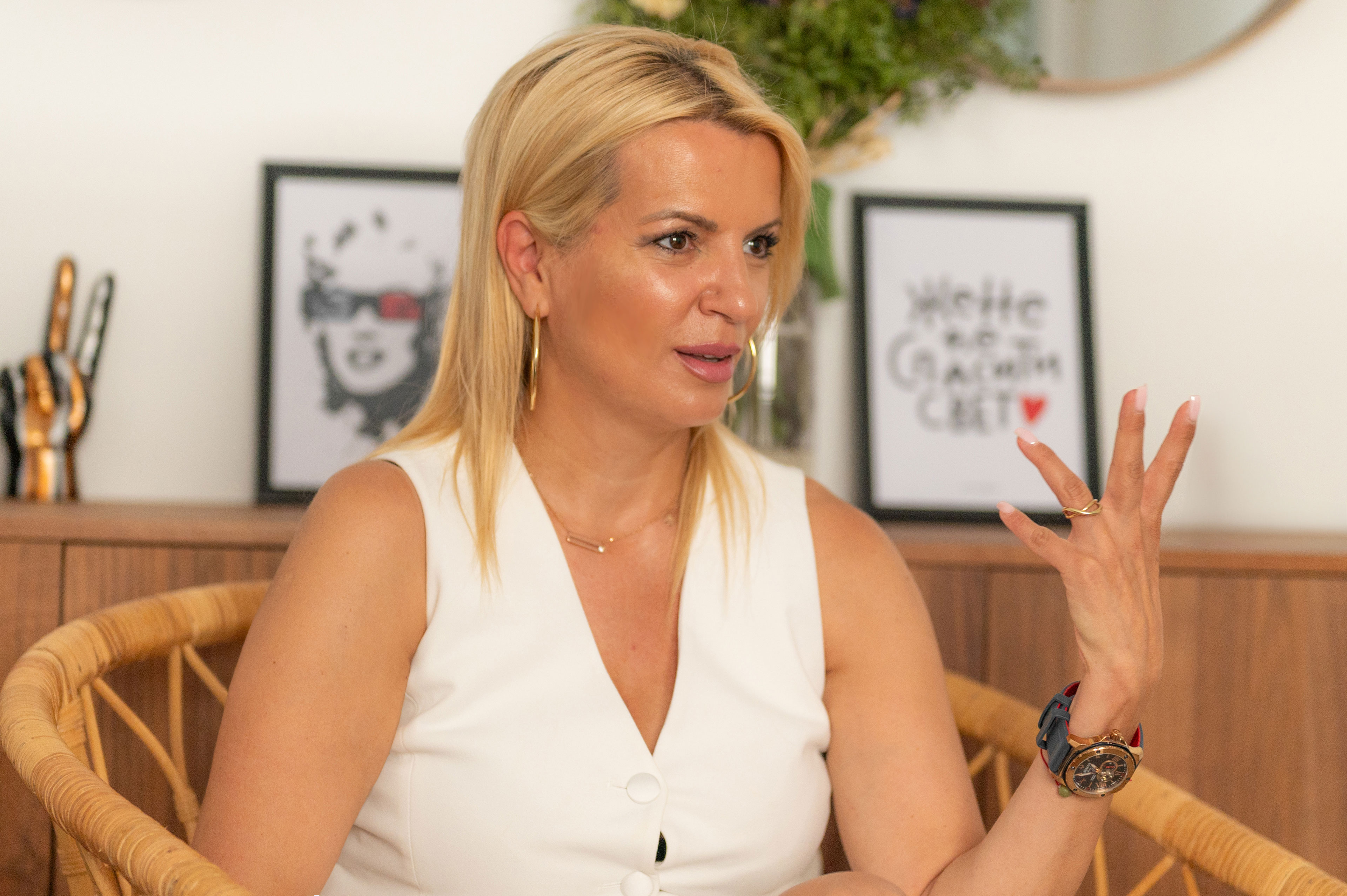
How did you start working in PR?
While I was at Pink, I was offered a corporate PR position, and it seemed like a good move since my children were still young. After two years, at an event, I met a woman who was in charge of recruitment for the largest agency at the time, McCann Erickson. She offered me a position in their PR department, and I transitioned to an account manager role for one of the teams.
After that, I moved to Communis, where I climbed the ranks in public relations. I particularly value the time spent under the leadership of Ivan Stanković. I learned so much from him, from who I would hire to how dangerous “fools with initiative” can be, and whether the client is always right, or if they'll respect you when you tell them they’re not. I try to apply everything I’ve learned in my own agency, which has now been running for seven years.
Today, when I hire someone, the most important thing to me is that they are a good and decent person. If I don’t see evidence to the contrary, I believe everything else can be learned.
I’ve had the opportunity to work with many different people, and I still do. You can learn something from everyone. Someone’s simplicity can amaze you, someone’s modesty can humble you, and someone’s nonchalance can frighten you. It’s important for clients to accept that media rules must be respected, that there are objective circumstances, but also to trust that you’ll lead them well because they know you’ll work as if for yourself—dedicated and committed, turning the impossible into possible with ease, all while respecting journalistic ethics and the ideas of your colleagues.
Can we expect to see you back on TV?
It’s amusing that taxi drivers, cashiers, and people I meet daily ask me, “What channel are you on now?” I smile and say, “None.”
Still, every year or two, I get offers, which I’ve been declining so far because of my own agency. But we’ll see—I once thought I’d never return and that I no longer had the stomach for everything that comes with it, unlike when I was 25. Many of my former colleagues are now editors and directors of new media, and I’m happy when someone from the time of enthusiasm, knowledge, and true passion for good television work takes those positions.
If the “old money” look has made a comeback, it would be nice to see the “old school” approach return to television, especially in front of the cameras.
In short, I’m not thinking about returning to TV, but I’m happy about those offers. All my attention and focus are on PR, where, knock on wood, things are going very well, and where I feel somewhat obligated to introduce new, young people and show them that in this profession, there is no compromise when it comes to quality and approach.




 3 ℃
3 ℃

